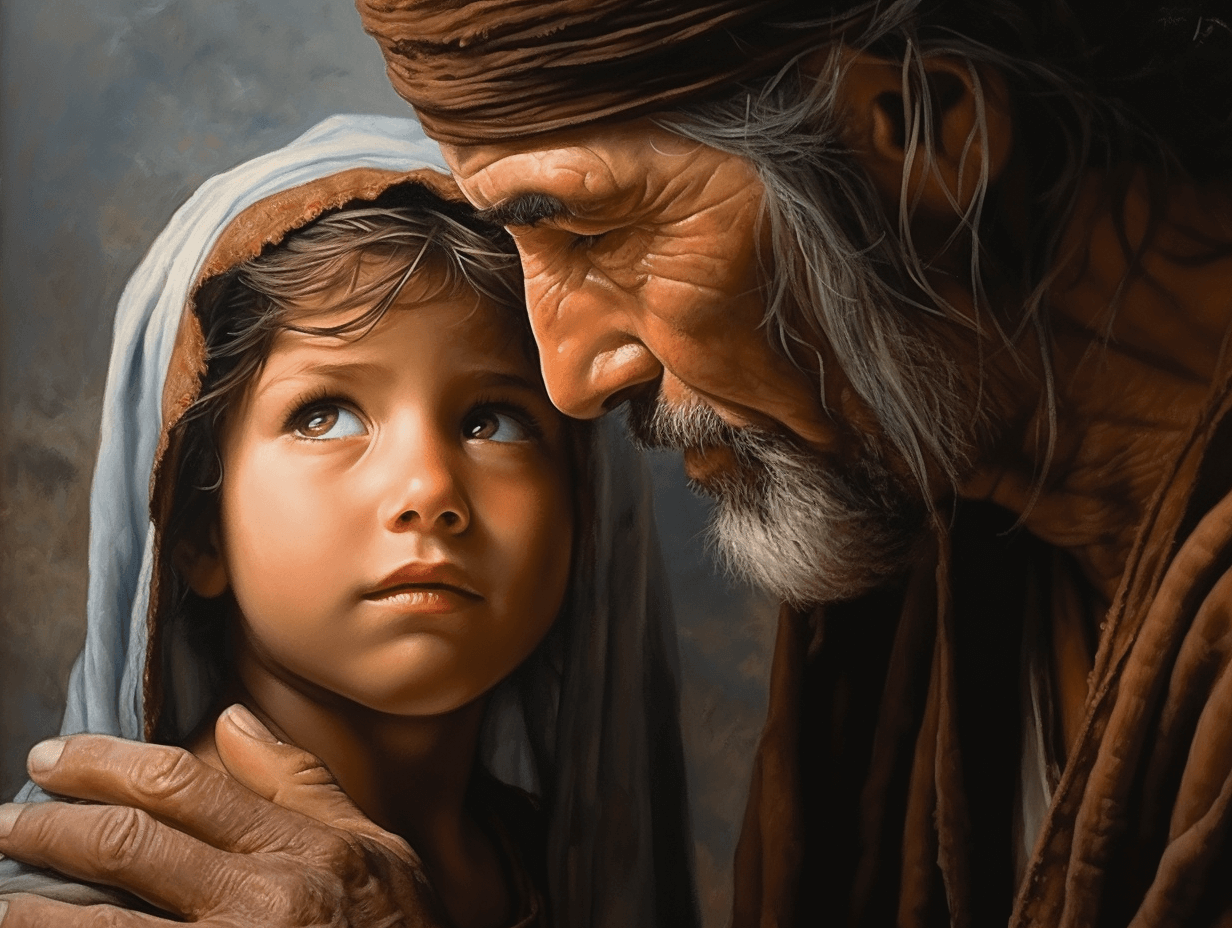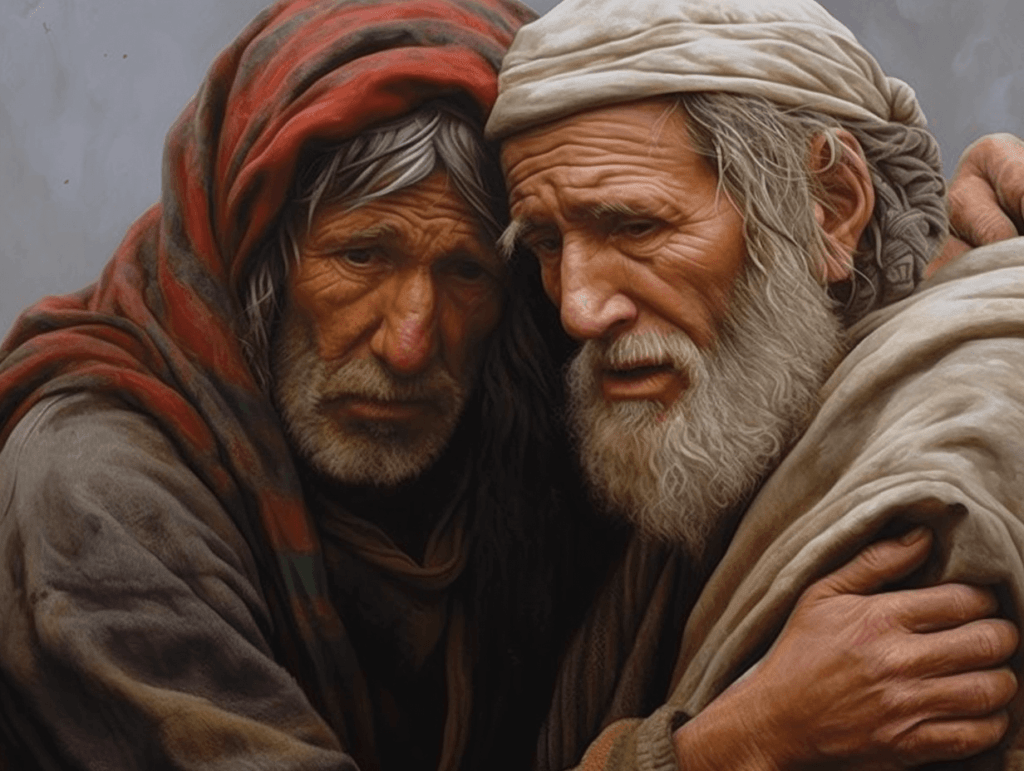Truth & Goodness
Poison on a Plate: What Drives Us to Eat Dangerously?
01 March 2026

Is goodness an inborn trait? A natural compass of behavior built into the brain allows humans as “herd animals” to coexist and cooperate. Or could the fact, for example, that different cultures stigmatize murder and theft – though not unconditionally – be the effect of a higher power endowing us with conscience? Whichever interpretation we adopt, empathy, or the ability to sense what others experience, is crucial in choosing good and doing it.
A team of psychologists in the US directed by Prof. Kiley Hamlin published the results of a study of six- and ten-month-old babies in 2007. They were shown a puppet performance involving three characters. One was climbing uphill, the second was disturbing it, and the third was helping. After the performance, when the puppets were offered to the babies, they chose the one that was helping. This fact was acknowledged as a premise confirming that intuitive recognition of good and evil is innate.
The results of the Hamlin team’s research may indicate the reason for compatibility between various religious and philosophical systems and what is termed the golden rule, that is, the principle of mutuality. As Hinduism teaches, “Do nothing to others that would hurt you if it were done to you,” while Christianity says “Love your neighbour as yourself,” and Islam declares that “No one of you becomes a true believer until he likes for his brother what he likes for himself.” Immanuel Kant posited two formulations for the categorical imperative: “Act only according to that maxim whereby you can at the same time will that it should become a universal law,” and “Act in such a way that you always treat humanity, whether in your own person or in the person of any other, never simply as a means, but always at the same time as an end.”
Given that diverse ways of presentation of this same principle have accompanied humanity over the centuries, it can be assumed that an intuitive natural ability to distinguish good and evil has been provided to us as language has; for example, as a tool for making biological adaptation easier, bringing us closer in protecting each other, that is, to building society. Obviously this doesn’t mean that humans are good by nature.

The principle of mutuality, while being the foundation of social life, isn’t sufficient for its organization. It isn’t always possible “not to do to another what’s unpleasant to you.” After all, like the babies from Prof. Hamlin’s experiment, who ignored the malicious puppet, we instinctively sense that someone harming others should be treated in a way that “will be unpleasant to them.”
To maintain cohesion (and order), expanding communities create evaluations and detailed norms regarding what is good and what is evil. We call the system of these norms morality, and call the science that studies it ethics.
While the golden rule remains unchanged, other norms constantly evolve along with peoples’ changing ideas about reality. Slavery, illegal today, was once considered good even for slaves, as their owners had a duty to care for them as their own property. Equal rights for women and men is still questioned in many countries – allegedly, it’s in women’s interests to be main objects of men’s attentiveness. Ownership is sometimes an inviolable sacred right of the individual; at other times it’s limited by community law, even belonging to the general public. As can be seen, humans with the help of the mind are able to justify mutually exclusive views.
The golden rule is safeguarded by empathy, or the ability to experience the same emotions as others. Its degree of development differs in different people, however. This may depend on early childhood experiences, for example, the basis for forming close interrelations, which includes trusting them. It’s known that in the first phase of life a baby takes on its mother’s emotions. They try to protect themself from her fears, indifference, or hostility by means of an emotional “protective wall.” This “wall,” however, then remains throughout life, separating them from the emotions of others they meet.
Empathy can also be affected by external factors: ideologies, drugs, alcohol, fatigue, and over-stimulation (as with soldiers in wartime). After a period, once one has been released from their influence, they start to feel guilty and strive to make amends for the harm they inflicted.
In society, 2 to 3% of us suffer from psychopathy, an incurable mental disorder (psychopaths are more often men than women, on a three-to-one basis). People with this character trait know and understand the difference between good and evil, yet with their empathy “turned off” they treat others solely as a source for satisfying their own needs. Intelligent, charming, they attract others only to manipulate them. They can be politicians, businessmen, professional frauds, eminent doctors as well as serial killers, depending on goals always pursued “over dead bodies” (literally or figuratively). Psychopaths are distinguished only by their ruthless pursuit of self-gratification.

Supporters of relativism argue that human societies in fact hold no fixed values, any single code, that is, for universal morality.
Depending on need, societies and even individuals create systems of values that are suitable (and convenient) for them at the given moment. Each of these is equivalent, or relative. This is due to each human being as a separate being determining what’s right or wrong for them (moral subjectivism).
Such defined relativism is in opposition to the view that some moral norms – for example, the golden rule – apply always and everywhere (moral objectivism).
Relativists, in justifying their views, refer to pragmatism, which is to say usefulness. In their evaluation, whether something is good or bad is determined by whether that thing improves their individual existence. In this sense, helping, for example, can only be good if it is voluntary. It then serves the self-realization of the helper: the recipient of that aid is a means and not the purpose of the action.
Aristotle posited that a human being isn’t capable of living in isolation, and reckoned that good is a logic chain of continuation and cooperation between different beings and states: soil is good when it’s fertile; fertile soil is good because it feeds people; people are good when they contribute to others’ development. Breaking this chain in pursuit of possession and usage “only for oneself” would be the negation of good, that is, evil.
A similar way of thinking can be found in the Far Eastern imperative to strive for balancing the energies of creation and destruction so that they, in harmony, drive the eternal wheel of birth and death of everything.
Successive works of philosophers, ethicists, religious thinkers have added their “bricks” to the mighty edifice of all attempts to define good. Despite this, on a daily basis in problem solving we must help ourselves through law, the pressure of public opinion, and habits instilled in our upbringing.
And even so, the moral life often consists of dilemmas, wondering, and remorse. Is in-vitro fertilization right or wrong? Would older parents be better off at home with us or under strangers’ professional care? Should we accept refugees or not? The answers to these questions will be different even within a group of people shaped by the same cultural patterns. Why? Because we always make our moral choices individually – according to our own responsibility and often against the applicable norms. The direction is shown to us by reason, as in the Hamlin experiment – by our inborn moral instinct, and the form of its realization.
Unfortunately, both develop to varying degrees in different people, and in addition are drowned out by errors of upbringing, customs, and ideologies. However, we as humanity survive only thanks to helping each other and by being merciful. Often in spite of views that allow giving rights to some those which they have taken from others, supposedly to defend the former but in reality to gain power over both.
Read also:

Truth & Goodness
01 March 2026


Zmień tryb na ciemny